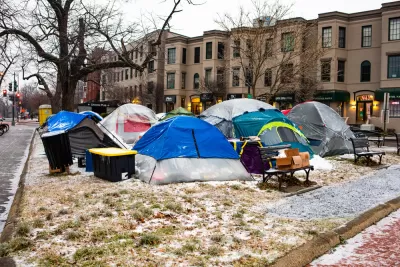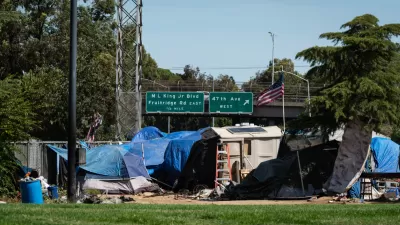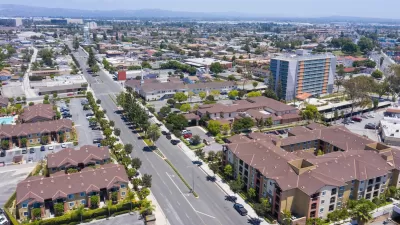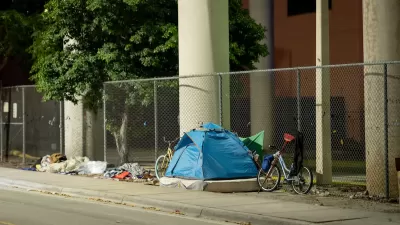One year into a pilot program to reduce encampments by offering housing and services to residents, almost three-quarters of participants have moved into housing.

According to an article by Chelsea Cirruzzo in Axios, Washington, D.C.’s Coordinated Assistance and Resources for Encampments (CARE) pilot program, aimed at reducing homelessness in the District, has seen roughly 72 percent of program participants entering into temporary housing leases.
“The program focused on four of the largest encampments — and offered some residents one-year leases with the intention of moving them into permanent housing,” Cirruzzo writes. “Among the four sites, 100 of the 139 eligible people received leases, according to Deputy Mayor for Health and Human Services Wayne Turnage. The remaining 39 either opted out of the pilot, no longer reside at the encampment, or are still working with outreach to find housing.”
Cirruzzo notes the limitations of the program: “Only residents who had been on a list of individuals waiting for housing were offered leases, so the pilot did not account for everyone living within these encampments.”
Advocates for unhoused people have criticized the District’s approach to clearing homeless encampments through forceful sweeps, Cirruzzo notes. “Miriam’s Kitchen and Pathways to Housing DC, the CARE housing contractors, tell Axios that they oppose permanently closing encampments because it can be traumatizing for residents.” Sweeps can also be counterproductive, reducing trust in government entities and making unhoused people more reluctant to accept or seek out services.
FULL STORY: D.C.'s homeless encampment plan, 1 year later

Maui's Vacation Rental Debate Turns Ugly
Verbal attacks, misinformation campaigns and fistfights plague a high-stakes debate to convert thousands of vacation rentals into long-term housing.

Planetizen Federal Action Tracker
A weekly monitor of how Trump’s orders and actions are impacting planners and planning in America.

In Urban Planning, AI Prompting Could be the New Design Thinking
Creativity has long been key to great urban design. What if we see AI as our new creative partner?

Pedestrian Deaths Drop, Remain Twice as High as in 2009
Fatalities declined by 4 percent in 2024, but the U.S. is still nowhere close to ‘Vision Zero.’

King County Supportive Housing Program Offers Hope for Unhoused Residents
The county is taking a ‘Housing First’ approach that prioritizes getting people into housing, then offering wraparound supportive services.

Researchers Use AI to Get Clearer Picture of US Housing
Analysts are using artificial intelligence to supercharge their research by allowing them to comb through data faster. Though these AI tools can be error prone, they save time and housing researchers are optimistic about the future.
Urban Design for Planners 1: Software Tools
This six-course series explores essential urban design concepts using open source software and equips planners with the tools they need to participate fully in the urban design process.
Planning for Universal Design
Learn the tools for implementing Universal Design in planning regulations.
planning NEXT
Appalachian Highlands Housing Partners
Mpact (founded as Rail~Volution)
City of Camden Redevelopment Agency
City of Astoria
City of Portland
City of Laramie





























